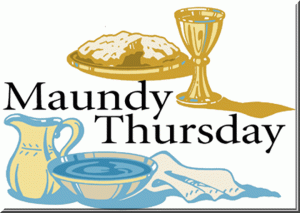Advent: Beginning the Christian Year and including four Sundays before Christmas, this season is a time of preparation for the coming of Christ.
All Saints Day and All Saints Sunday: November 1 or the first Sunday in November. Many churches celebrate and remember all Christian saints.
Ascension Day: The day marking the ascension of Christ into heaven as witness by the apostles. It is observed on the fortieth day, the sixth Thursday, of Easter, and it may be celebrated on the seventh Sunday of Easter.
Christ the King: The Last Sunday after Pentecost is observed to lend special emphasis to the royal kingship of Christ.
Christmas Season: The season beginning with the anniversary of the birth of our Lord and Savior Jesus Christ on December 25 and continuing through Epiphany on January 6.
Easter: The resurrection of Christ, the greatest and oldest religious observation of the Christian church.
Easter Eve: The evening before Easter, occurring on Holy Saturday. The service on Easter Eve is considered the first service of Easter.
Epiphany: Celebrated on January 6, this day commemorates the coming of the Magi to visit the baby Jesus. The season after Epiphany is observed from the First Sunday After Epiphany until Ash Wednesday. The Last Sunday After Epiphany is also celebrated at the Transfiguration.
Good Friday: The Friday before Easter on which the crucifixion of Jesus Christ is observed.
Holy Thursday or Maundy Thursday: The Thursday before Easter, commemorating the Last Supper, and the New Commandment to love one another. Some churches include “washing of the feet: in the Holy Thursday service.
Kingdomtide: Some United Methodists prefer to call the season after Pentecost Kingdomtide
Lent: This season begins with Ash Wednesday and concludes at sunset the day before Easter. It is a period of penitence in preparation for Easter.
Ordinary Time: The Sunday that stands between the two great christological cycles of Advent – Christmas-Epiphany and Lent – Easter-Pentecost. The shorter period of Ordinary Time is usually designated as Sunday After Epiphany and the longer period is designated Sundays After Pentecost.
Pentecost (Whitsunday): The observance of the coming of the Holy Spirit, fifty days after Easter. Some recognize this anniversary as the beginning of the Christian Church. The Season After Pentecost begins with the day after Pentecost and continues until Advent.
Tenebrae: Sometimes called “The Service of Shadows” or “Darkness.” A late night or early morning service that is an extended meditation on the passion of Christ. May be observed at the end of the Maundy Thursday service or on the evening of Good Friday as the beginning of a prayer vigil lasting through Saturday.
Transfiguration Sunday: The last Sunday before Lent marking Christ’s transfiguration on the mountain with Elijah and Moses.
Trinity Sunday: The First Sunday After Pentecost, on which the union of God, Jesus Christ, and the Holy Spirit is celebrated.
Colors for the Christian Year
Purple is a color of both penitence and royalty used during the seasons of Advent and Lent.
Blue, a color of hope, may also be used during Advent.
White is used during the Christmas and Easter Seasons and for other festive days, such as All Saints, weddings, services of baptism, and service of death and resurrection.
Green, a color of growth, is used in the Seasons After the Epiphany and After Pentecost.
Red, a color of fire, is used on the Day of Pentecost and at other times when the work of the Holy Spirit is emphasized. Red is also used in evangelistic services, ordinations and consecrations, anniversaries and homecomings, Martin Luther King Jr. Day or Memorial Day, and during Holy Week, to symbolize the blood of Christ.
United Methodist Special Days
Six special Sundays are celebrated by UM’s with churchwide offerings:
Human Relations Day: Sunday before the observance of Martin Luther King Jr.’s Birthday
One Great Hour of Sharing: Fourth Sunday in Lent
Native American Awareness Sunday: Third Sunday of Easter
Peace with Justice Sunday: First Sunday after Pentecost
World Communion Sunday: First Sunday in October
United Methodist Student Day: Last Sunday in November
Two special Sundays are celebrated without church-wide offerings:
Heritage Sunday: April 23 or the first Sunday following that date. The United Methodist Church was created on April 23, 1968, with the union of The Evangelical United Brethren Church and The Methodist Church.
Laity Sunday: Third Sunday in October
Four special Sundays provide opportunities for annual conference offerings.The dates of these special days are determined by your annual conference.
Christian Education Sunday, Golden Cross Sunday, Rural Life Sunday, Disability Awareness Sunday
Major Jewish Religious Observations
Hanukkah (Chanukah): Festival of Lights. Celebrates the cleansing and rededication of the Temple in 164 B.C. after the successful rebellion of the Jews against the Seleucids in the Maccabean War.
Passover: The Feast of Unleavened Bread. Celebration of the deliverance of the Jews from slavery in Egypt.
Purim: The Feast of Lots. Celebrates Queen Esther’s saving her people during the exile in Persia. The book of Esther is read in the synagogue. Purim is a time for charity to the poor and sharing food.
Rosh Hashanah: The Jewish New Year. A time of prayer and penitence sometimes called the Day of Remembrance or the Day of Blowing the Shofar. The story of Abraham’s obedience to God in his willingness to sacrifice his son Isaac is read in the synagogue.
Shavuot (Shabuoth): Festival of the Giving of the Law. Celebrates Moses’ returning from Mt. Sinai with the stone tablets containing the Ten Commandments.
Sukkot (Sukkoth, Succoth): Feast of Booths. Commemorates the forty years in the desert after the escape from Egypt.
Shemini Atzeret: The eighth day of Sukkot dedicated to the love of God.
Simchat Torah: The day following Shemini Atzeret that celebrates the public reading of the Torah.
Yom Kippur: Day of Atonement. The holiest day in the Jewish calendar. Individuals acknowledge their transgressions and make atonement to God to obtain forgiveness.


